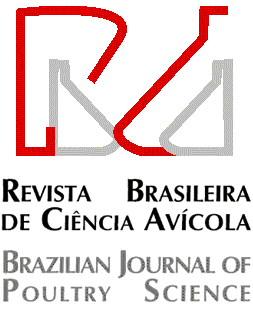ABSTRACT
In Experiment one, a total of 60 blue peacocks were randomly assigned into the control group (12.00 MJ/kg) and treatment group (12.30 MJ/kg). Each group consisted of three repeats and each replicate contained 10 peacocks (2 males and 8 females). In Experiment two, based on better metabolic energy (ME) (12.30 MJ/kg), 90 blue peacocks were randomly assigned to three dietary treatments with 18.00%, 19.00% and 20.00% crude protein (CP) levels. The results of Experiment one revealed that the different dietary ME levels had minor effect on productive performance of peacocks (p>0.05). Decreasing dietary ME levels decreased the concentration of estradiol (E2) and increased the concentrations of follicle stimulating hormone (FSH) and luteinizing hormone (LH) (p<0.01). However, 12.00 MJ/kg ME stimulated creatinine levels of blue peacock, which exceeded normal values. Based on this result, blue peacocks fed with 12.30 MJ/kg ME had better performance. Results from Experiment two indicated that egg production of blue peacocks was significantly improved by the 20.00% CP diet. The concentrations of FSH, LH, and E2 remained at high levels fed with the 20.00% CP diet. Changes in serum biochemical indices such as total cholesterol, creatinine and globulin of peacocks supplied with 18.00% and 19.00% CP diets were abnormal (p<0.05). Based on the results of two experiments, the optimal dietary ME and CP levels of blue peacocks were 12.30 MJ/kg ME and 20.00% CP.
Keywords:
Blue Peacock; energy; protein; productive performance; reproductive hormone

 Thumbnail
Thumbnail
 Thumbnail
Thumbnail

